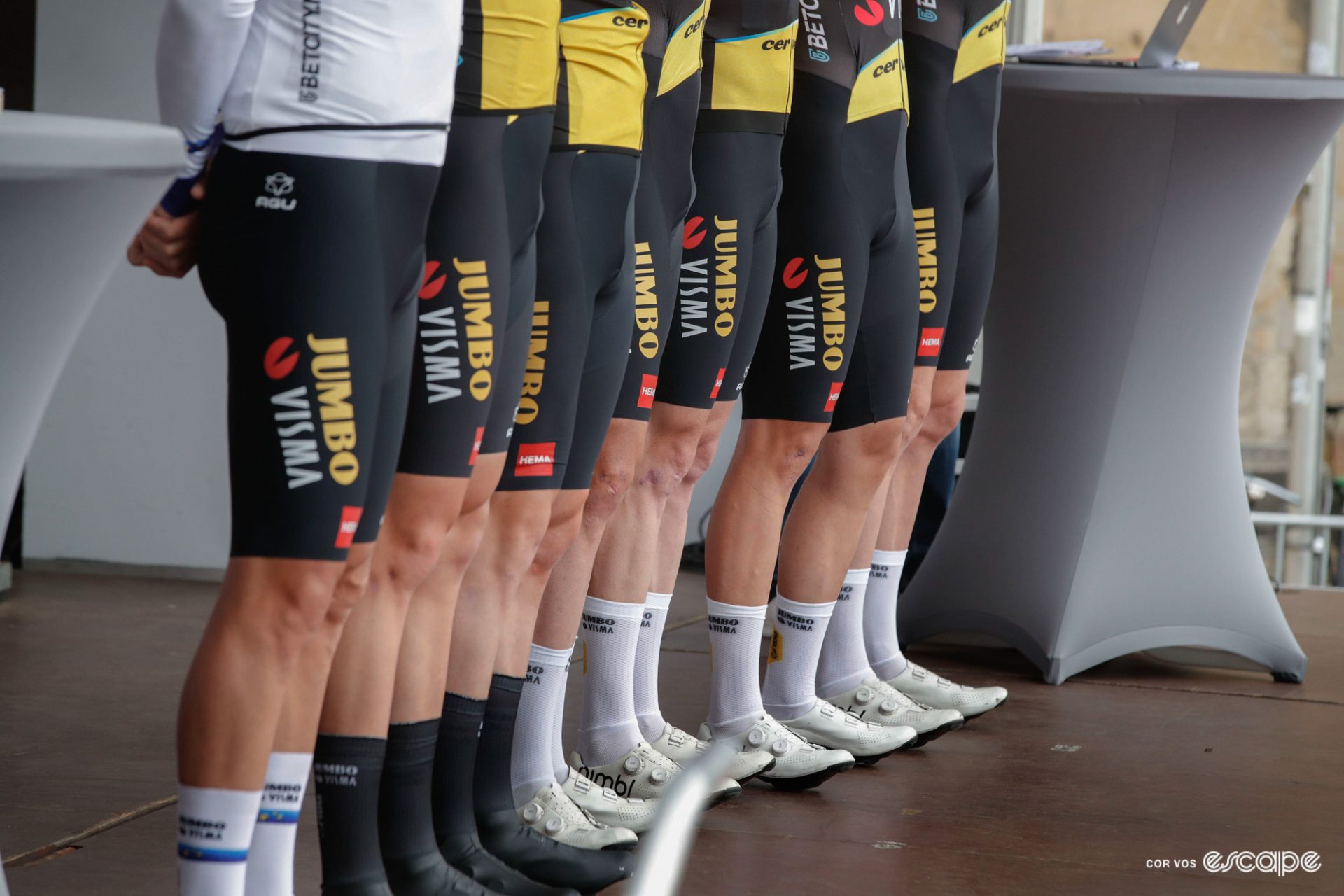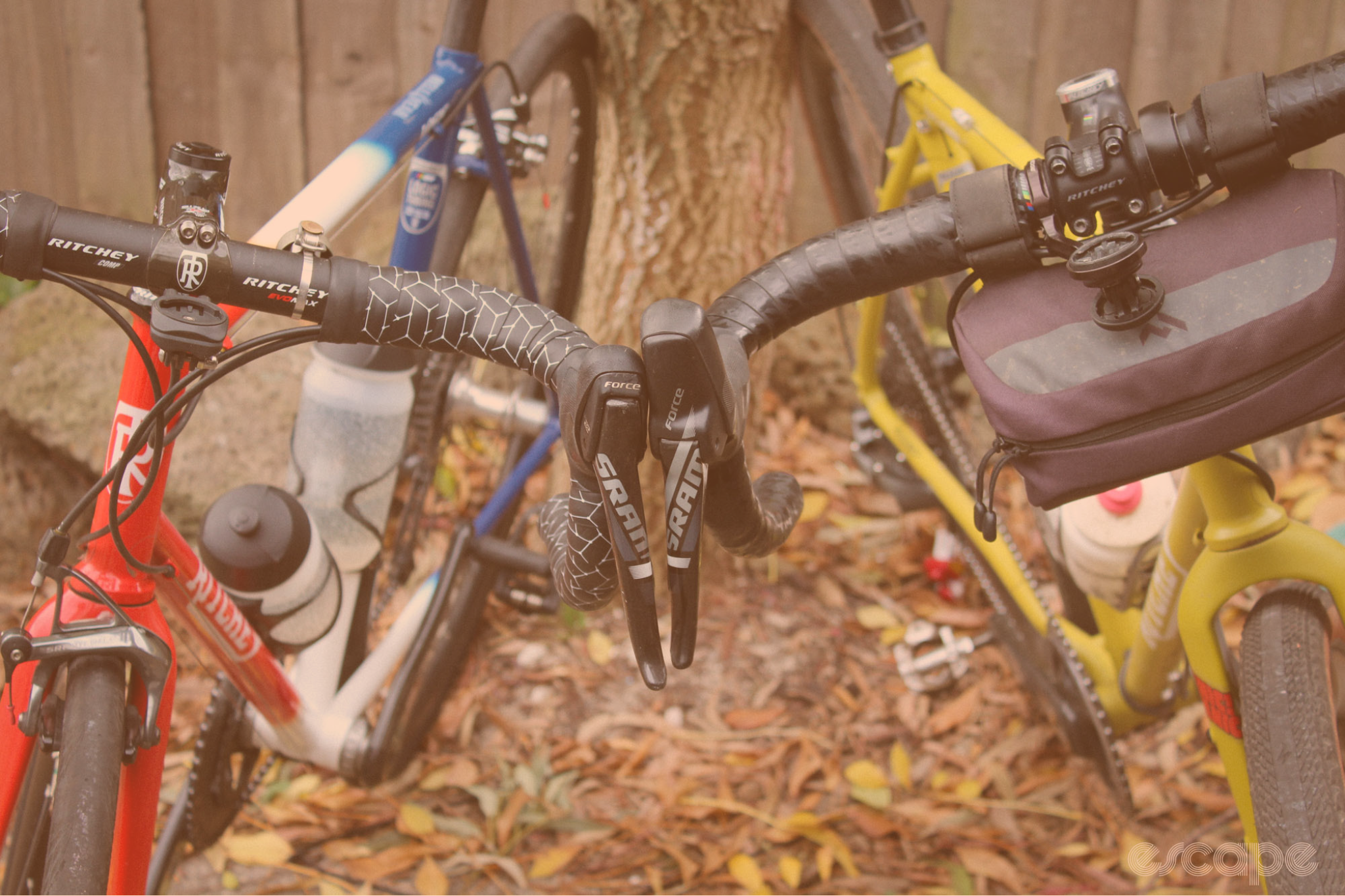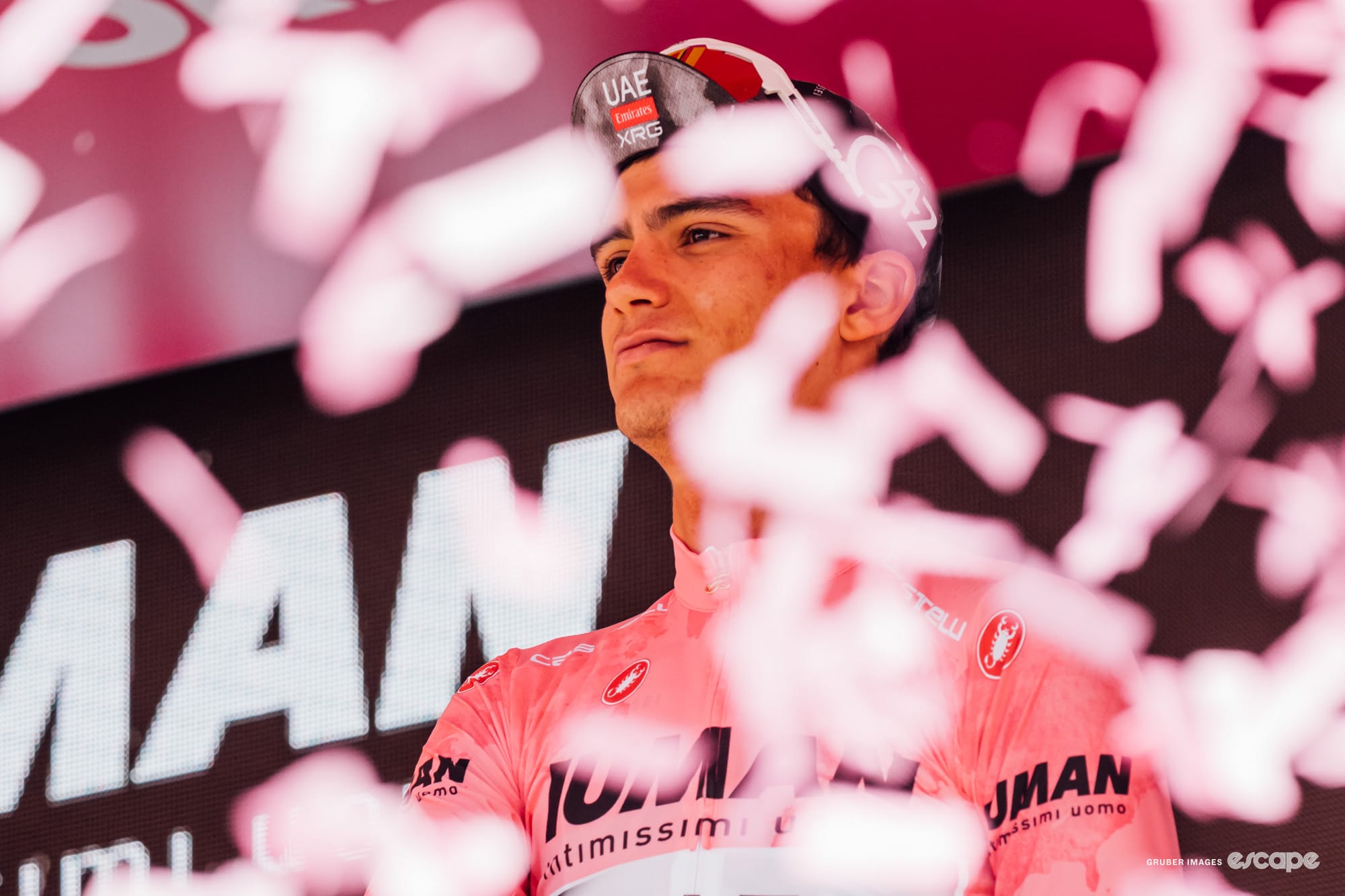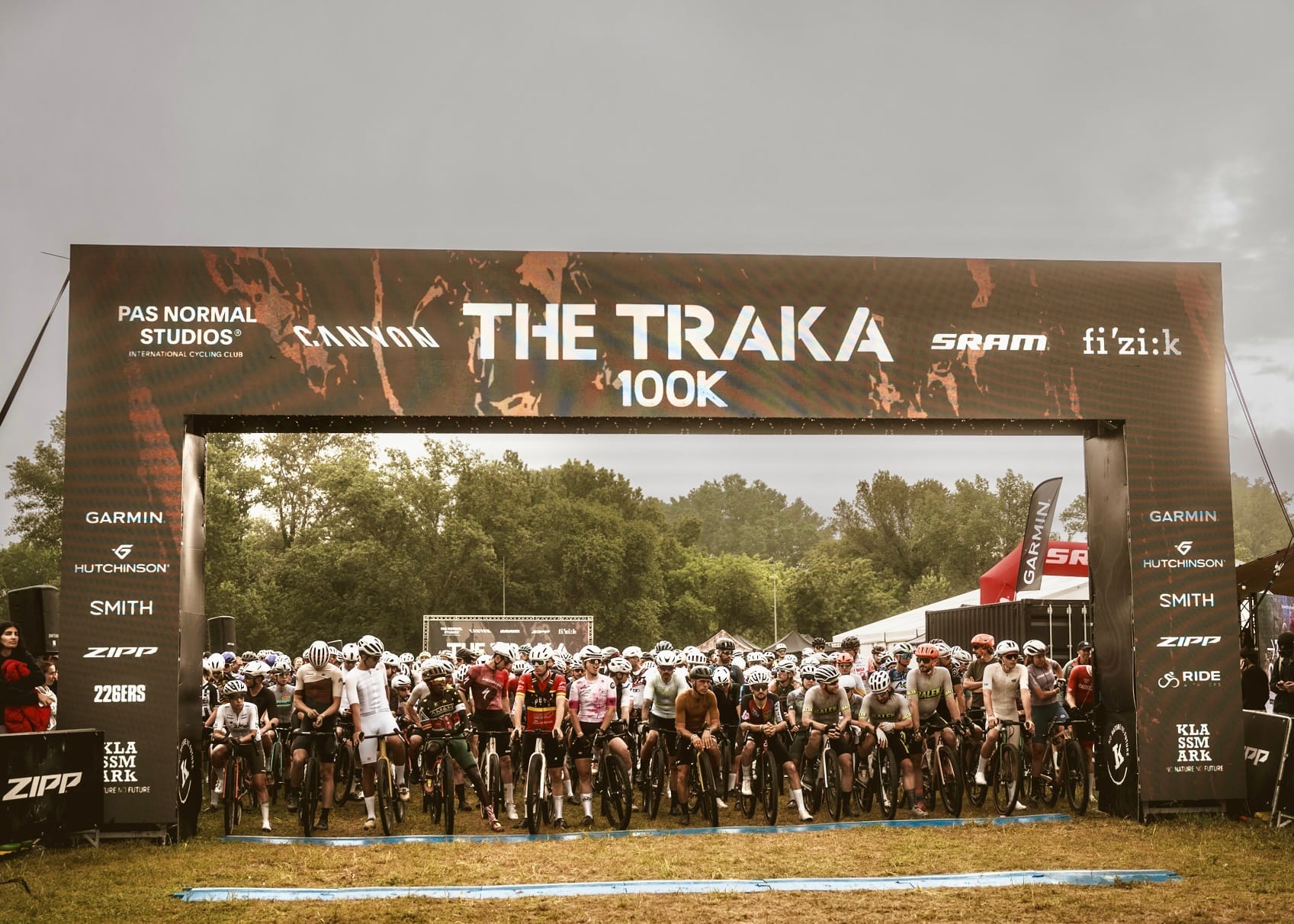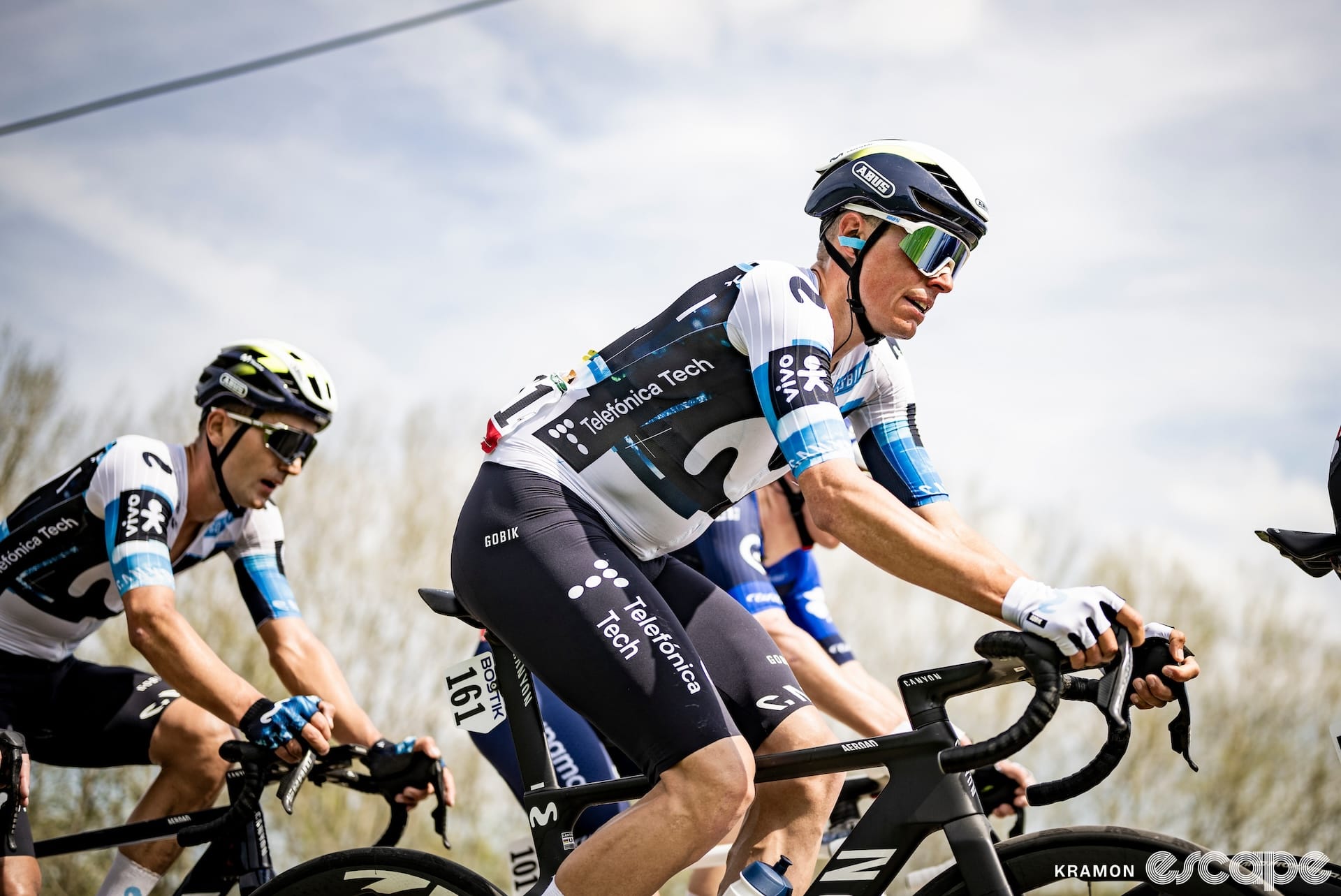The rise of the youthful pro cyclist is, by this point, a well-established phenomenon. Tadej Pogačar rode to a Vuelta a España podium at the age of 20, and has only just graduated from white jersey contention after four Tours de France.
His UAE Team Emirates teammate, Juan Ayuso, started even younger – a Vuelta podium at 19, in the second year of a five year contract. Then there’s the likes of Remco Evenepoel, skipping straight past U23 and signing with Deceuninck Quick-Step at 18. For the talent scouts of the sport, there’s pressure to secure the next star of the future before someone else does.
Now, the results-hungry Jumbo-Visma institution has set a new high (or low?) watermark: by signing Håkon Eiksund Øksnes, a 16-year-old from Oslo, to its development pathway.
Øksnes will join the JEGG-DJR Academy from next season (which operates under the Jumbo-Visma umbrella) before joining Jumbo-Visma’s U23 development team in 2026. From there, a WorldTour berth in 2027 or 2028 could await. All of which means that Jumbo-Visma are signing literal children on the prospect of their development into WorldTour-level cyclists four or five years from now.
Øksnes, born in 2007, competes across multiple disciplines and is one of the leading riders of his age category in Norway, winning the road race and time trial in Norway’s prestigious Joker Championship 15-year-old category in 2022, and the road race as a 16-year-old this year. He currently rides for the NTG Lillehammer set-up, and has seen several former teammates – albeit a fair bit older – attract the interest of Jumbo-Visma’s development squad, among them Per Strand Hagenes (20) and Johannes Staune-Mittet (21). Øksnes was also scouted by AG2R Citroën, but opted for Jumbo-Visma instead.
“You almost run out of words [when approached by Jumbo-Visma],” Øksnes told TV2. “You gain a lot of confidence in their system when you see all the other Norwegian riders who have succeeded extremely well there. Both Hagenes and Staune-Mittet have won a lot, and the team has Jonas Vingegaard [a Dane] and this year won all the big three-week races. So it looks very good.”
Øksnes’ signing is reflective of Jumbo-Visma’s rigorous development pipeline as well as its links to Norway. Visma, one of the team’s title sponsors, is an Oslo-based software company, and although they’ve downplayed any influence this might have in signings it’s reasonable to assume that they’re keeping an eye on Norwegian talent. Robert de Groot, the head of Jumbo-Visma's development team, told TV2 that “we have a large scouting network, also in Norway, and we have a direct line to [NTG Lillehammer coach] Even Røed. That way we can communicate about young and talented riders. Håkon was mentioned at a very young age, and we believe that he has great potential. We have also looked at his numbers and talked to many people around him, so it was really a very easy decision to make.”
That’s further informed by the execution of Jumbo-Visma’s multi-year plan, which has seen them grow into the peloton’s dominant force. The team’s head of performance, Mathieu Heijboer, told Escape Collective – in an episode of Performance Process coming out Friday – that foundations were laid more than half a decade ago. “Obviously back in 2015-2016, winning a Grand Tour was far out of reach. So we had to more or less a little bit calculate, okay, what is needed to win a Grand Tour. Now we have the benchmarks in our team,” Heijboer explained.
“Which is very useful, because we can use that benchmark already to develop the young guys from the development team to show them, ‘look, if you want to win the Tour de France in the future, you have to be able to do this and this’. And our data analyst is really going down [into] all those numbers, and also teaching [the performance team] what is needed to win the big races – why we maybe weren't succeeding at some races, and why we were – so that is one part of his job, and obviously another part is also the scouting process. Looking for new riders to strengthen our team, looking at power profiles, looking at the head, race results, etc,” Heijboer told us.
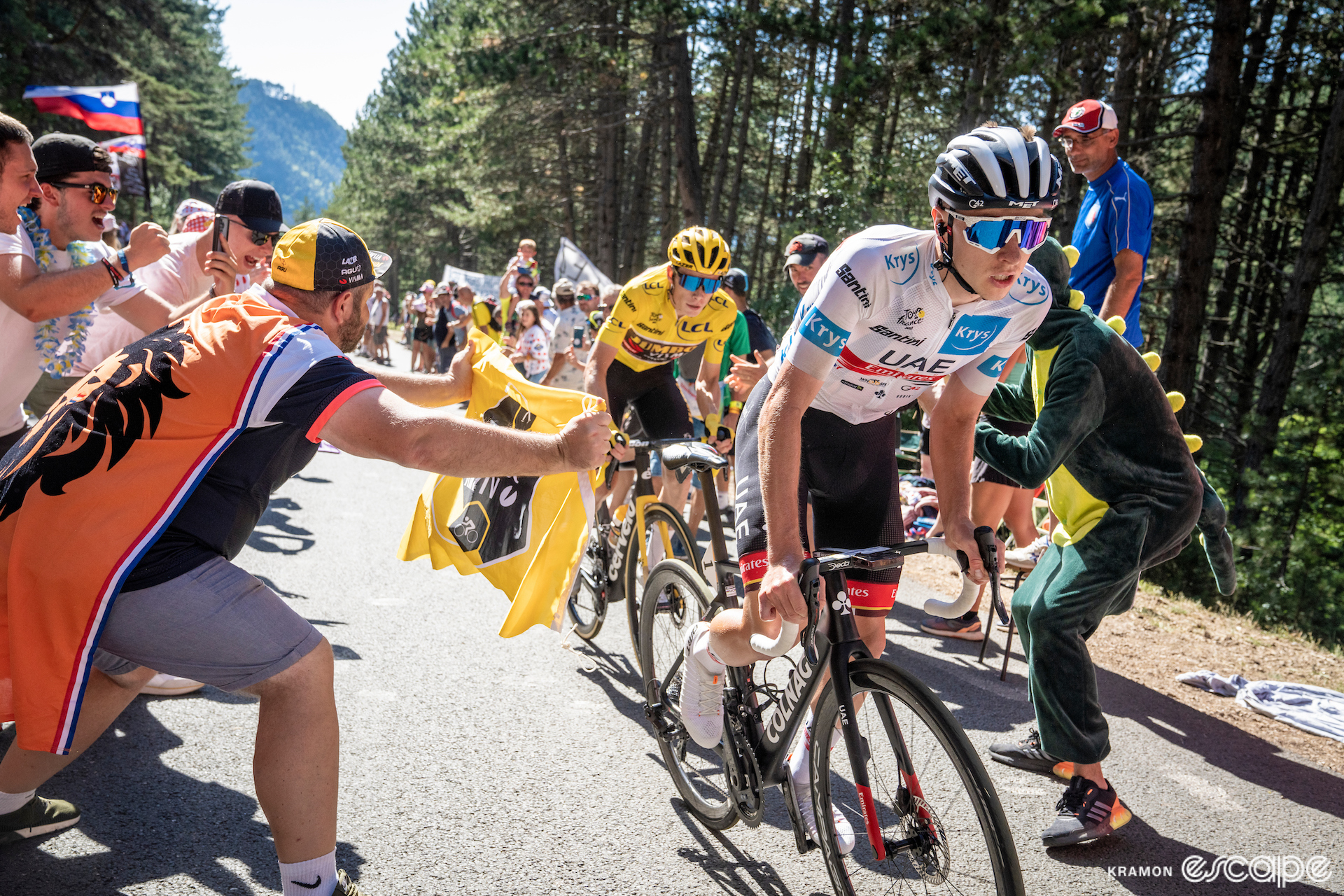
That’s all well and good, but there’s some unease in the institutions of Norwegian cycling that something could be lost in the rush to seek out ever younger, earlier-blooming talent.
On one hand, there is disquiet in Norway’s cycling media that the likes of Øksnes are being lured away from their homeland; TV2 pundit (and former Credit Agricole professional) Mads Kaggestad bemoans the fact that Uno-X didn’t snap Øksnes up first [“Uno-X must be on the field before the foreign big teams,” he said].
On the other hand, there are the likes of Jens Haugland, Uno-X’s general manager, who believes that there is an important place for pressure-free, fun-based development. “My experience is that we should be more careful than ever in identifying 15-16-year-olds as future professionals. We stand for a philosophy where young boys and juniors should have fun in their arena without being hunted down by agents and others,” he told TV2. “I'm not a fan of having to persuade 16- and 17-year-olds to choose Uno-X. It becomes too serious and too important too soon. I think we will see more stories in the coming years about riders who perhaps chose a little too early.”
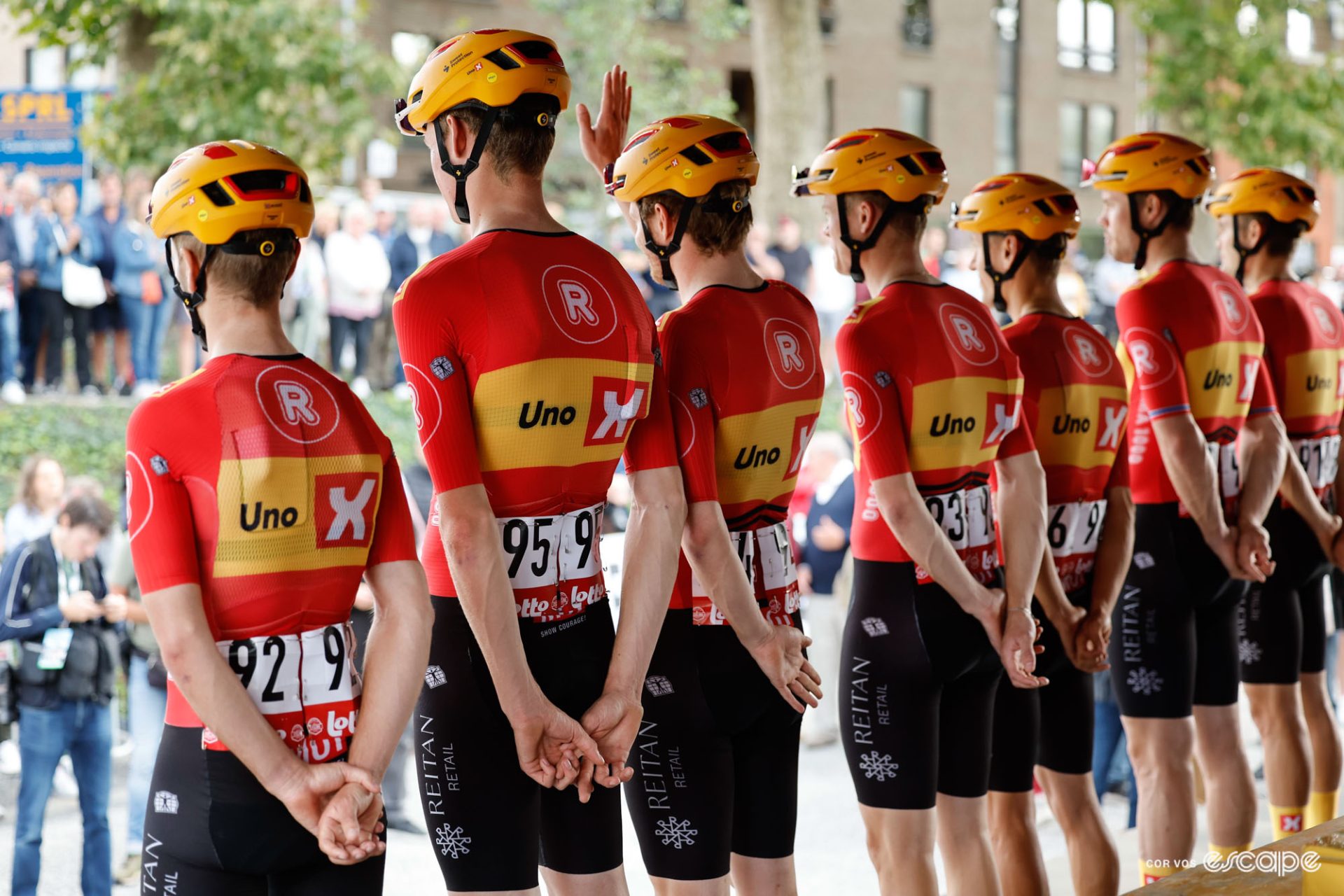
Øksnes is not a unique case in the sport (although he is the youngest that springs to mind). The Danish multi-disciplinary phenomenon Albert Philipsen (only just 17), who won both the U19 Road World Championships and XCO World Championships in Glasgow this year, is reportedly being hounded for his signature by more than half of the teams in the WorldTour. “There are more teams than less who are interested in Albert for the WorldTour,” Philipsen’s agent, Alex Carera, told GCN. “There are more than 12 teams but we’ve not decided yet on his future. It’s really too early and we need to see many things before a decision is made.”
Philipsen’s future is not yet mapped out, although it seems likely that it will be a bright one. Øksnes is more of an unknown, yet to graduate to U19, and already signed until the end of 2026.
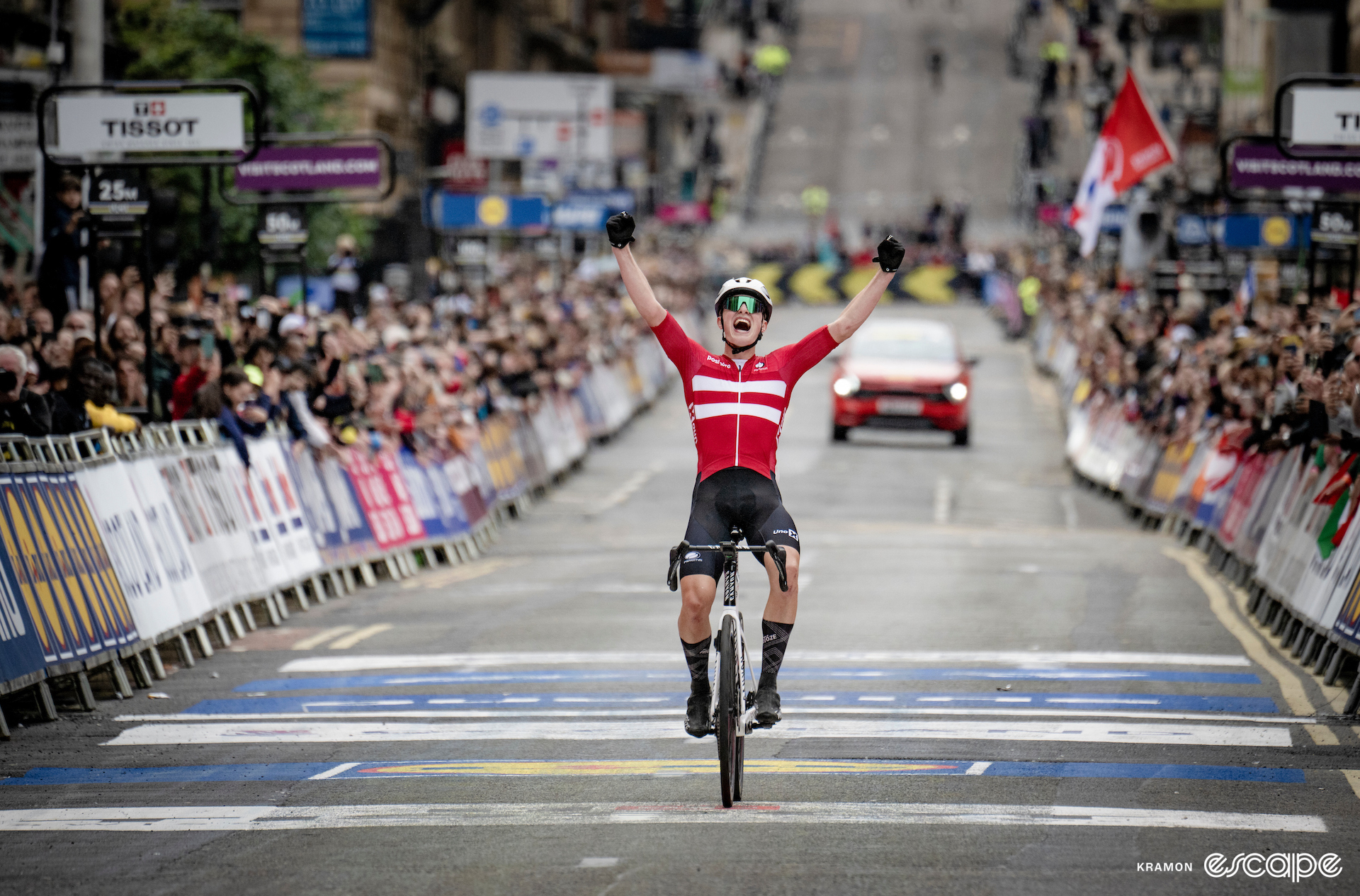
As a testy Twitter exchange between Haugland and Kaggestad reveals, there’s concern of a disconnect between personal development and sporting ambitions – one that risks taking teenage cyclists and locking them down with lengthy contracts before they’re even capable of voting, driving a car, or drinking, and potentially stifling their love of the sport in the process. "I'll be damned if we start chasing cyclists before they are juniors. We will always fight for a great Norwegian club and school model," Haugland wrote on Twitter. Uno-X development pathways, he said, emphasise the importance of developing young cyclists within their home environment, within a controlled and familiar environment, and after they have begun racing in the U19 category. Øksnes, meanwhile, will be racing in a Dutch system, and presumably more isolated from family and friends despite the presence of a few countrymen and clubmates.
Cycling has undergone a shift over the last five years, led by prodigious talents that have redefined expectations of early-career pros. In 2019, Egan Bernal was the youngest Tour winner in a century. A year later, Tadej Pogačar was younger still. There is a space in the peloton for 19 year olds and 20 year olds, and some of them are obviously thriving. But a lot of physical and mental growth takes place in adolescence, giving people the skills to navigate challenges later in life.
When you’re on the clock as a 16 year old, there is opportunity. But there is also risk.
Did we do a good job with this story?

